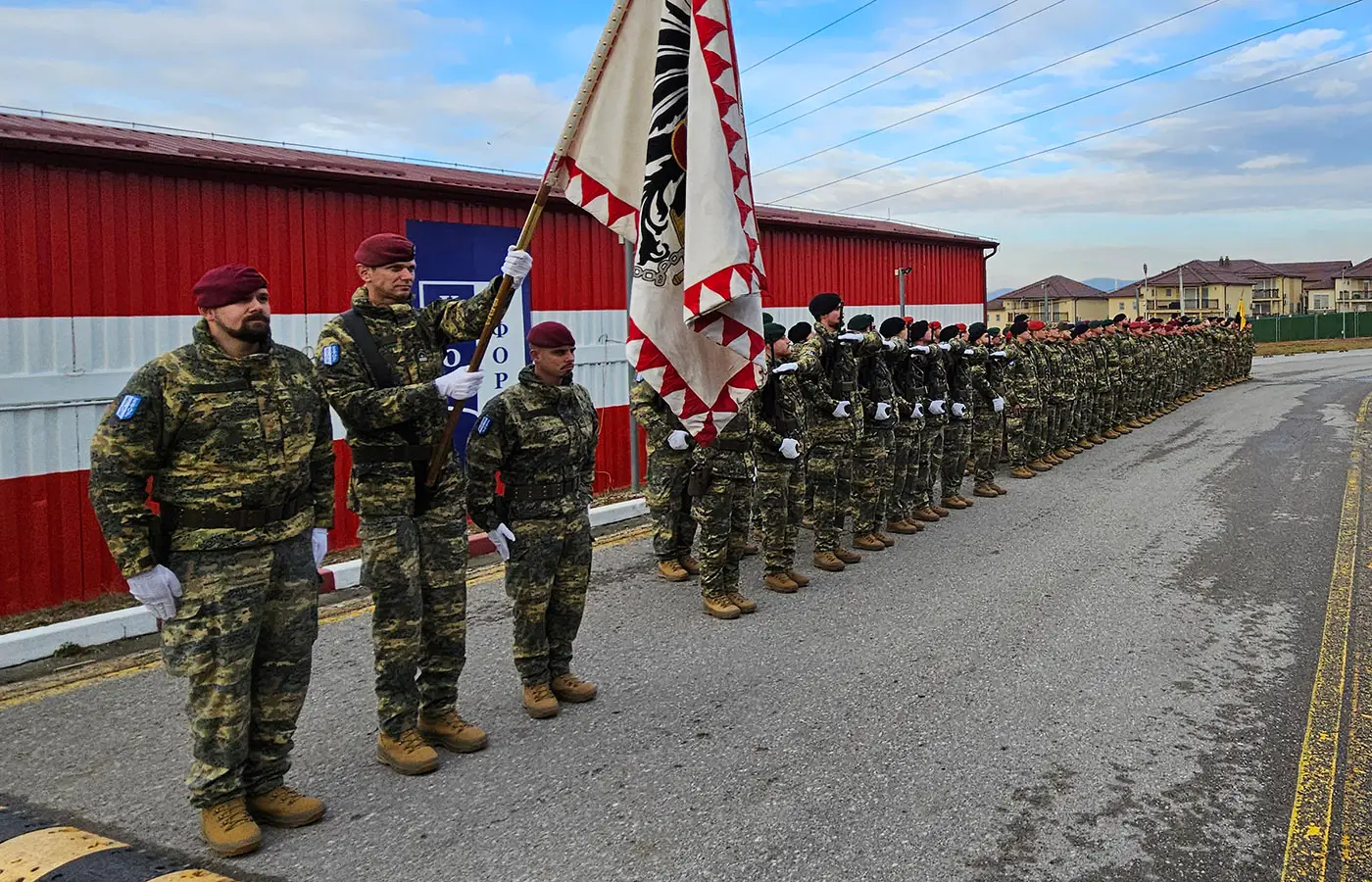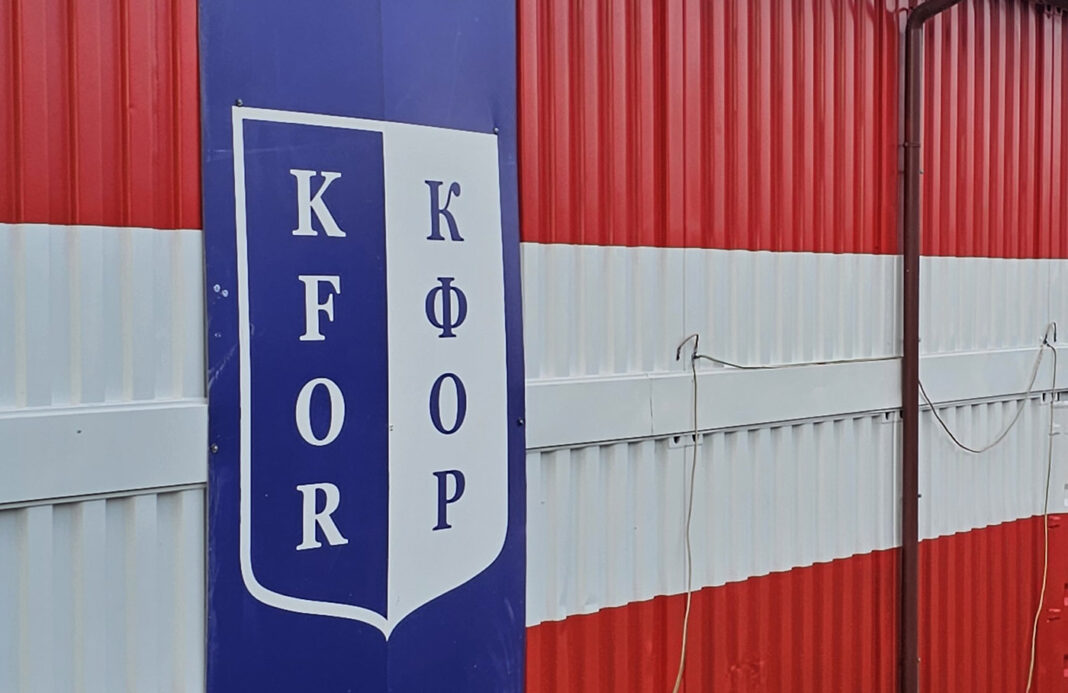The Main Committee of the National Council recently gave the green light for a number of new and ongoing deployments of the Austrian Armed Forces to international missions in the new year. Existing deployments such as in Lebanon, Bosnia and Kosovo will be continued. New missions to Jordan, Kyrgyzstan and the Gulf of Guinea are also planned.
According to Defense Minister Klaudia Tanner, Austria is making an “important contribution to international crisis management” with its commitment abroad. Foreign Minister Alexander Schallenberg, in turn, said that problems should not be dealt with only once they have reached Austria’s borders. In view of the current world situation and in particular the wars in Ukraine (-> current news from the Ukraine war) and in the Middle East “more international commitment, not less”.
Militär Aktuell Podcast #1: Rheinmetall Skyranger schießt scharf
The extended deployments of the Austrian Armed Forces in detail
Among other things, Austria’s involvement in the United Nations Interim Force in Lebanon (UNIFIL) was extended. Up to 570 members of the Austrian Armed Forces will continue to be deployed there in 2025. According to Defense Minister Klaudia Tanner (-> Interview with Klaudia Tanner on the UNIFIL deployment of the Austrian Armed Forces) form the backbone of the mission.
Austria will participate in the multinational peacekeeping operation in Kosovo (KFOR) in the new year with a reduced contingent of up to 600 members of the Austrian Armed Forces (-> Defense Minister Klaudia Tanner: “We will stay as long as it is necessary”) will participate. In 2024, up to 900 people were deployed. The United Nations Interim Administration Mission in Kosovo (UNMIK) will also continue to be supported by one person from the Ministry of the Interior as a Police Operations Liason Officer, one person from the Ministry of Defense and up to 50 members of the Austrian Armed Forces.
Up to 700 members of the Austrian Armed Forces will be deployed to the EU military operation in Bosnia and Herzegovina (EUFOR ALTHEA) to prevent violent riots and help maintain security and order. In addition, up to 200 members of the Austrian Armed Forces are to be kept on standby as operational reserve forces for the multinational peacekeeping mission in Kosovo and EUFOR ALTHEA in order to be able to reinforce the contingents on the ground at short notice if necessary.
Participation in the NATO mission in Iraq (NMI) will also be continued until the end of 2025 with up to ten members of the Ministry of Defense and up to 50 members of the Austrian Armed Forces. The following will also be extended Austria’s involvement in the EU maritime operation in the Red Sea (EUNAVFOR Aspides) with up to five members of the Ministry of Defense and up to 50 other members of the Austrian Armed Forces. Up to 65 members of the Austrian Armed Forces will also continue to be deployed to the European Union’s military operation in the Mediterranean (EUNAVFOR MED Operation IRINI). The focus of the operation is on enforcing the arms embargo against Libya through air surveillance, satellite and maritime components.
The Austrian Armed Forces will continue to provide up to 58 members for the United Nations peacekeeping force in Cyprus (UNFICYP). Up to three police officers and up to five members of the Austrian Armed Forces with observer status as well as up to 30 other members of the Austrian Armed Forces will also reinforce the EU Monitoring Mission in Georgia (EUMM Georgia) until the end of 2025. One of the mission’s objectives is to monitor the withdrawal of Russian troops from the country. Austria will also continue to be represented in the Republic of Moldova. Up to ten people from the Ministry of Defense and up to 50 members of the Austrian Armed Forces will be deployed to the OSCE mission. The aim of the EU Partnership Mission in Moldova (EUPM Moldova), which is also based in Moldova, is to help make the security sector in the country more resilient. Austria will support the mission with up to five police officers, three members of the Austrian Armed Forces, four members of the Ministry of the Interior and up to 50 other members of the Austrian Armed Forces.

Three police officers and four members of the Ministry of the Interior as well as up to 55 members of the Austrian Armed Forces will also reinforce the EU mission in Armenia (EUM Armenia) until the end of 2025. The deployment to the OZSE mission in Montenegro was also approved. Up to 10 members of the Ministry of Defense and up to 50 other members of the Armed Forces will continue to support the mission for stockpile security and stockpile management of weapons and ammunition. In order to support the Mozambican armed forces in the development and improvement of capabilities, up to 30 members of the Ministry of Defense and up to 50 other members of the armed forces will be deployed to the support mission of the EU mission in Mozambique (EUMAM Mozambique) by the end of 2025.
The new deployments of the Austrian Armed Forces in detail
A new development is the planned deployment of up to 40 people from the Ministry of Defense and up to 50 other members of the Austrian Armed Forces to a NATO initiative in Jordan (NATO DCB-I JOR). The aim is to build up capacities in the defense and security sector. Up to ten people from the Ministry of Defense and up to 30 members of the Austrian Armed Forces will also be sent to the OSCE programme office in Kyrgyzstan’s capital Bishkek for the first time this year.
For the first time, up to 30 members of the Ministry of Defense and up to 50 members of the Austrian Armed Forces are to be deployed to the EU Security and Defense Initiative in Support of the West African States of the Gulf of Guinea (EUSDI GoG). The initiative is intended to support Côte d’Ivoire, Ghana, Togo and Benin in developing the capabilities of their security and defense forces.
International exercise and training activities of the Austrian Armed Forces
Parallel to the permanent deployments the Austrian Armed Forces are also planning a total of 33 exercises and training measures abroad for the coming year. Three projects will take place within the framework of international organizations such as the OSCE, three within the framework of the EU, four within the framework of NATO and 23 within the framework of bi- or multinational cooperation. The majority of these are staff or troop exercises or training. Depending on the measure, between three and 350 people will be deployed. Deployments are planned to a wide variety of countries, such as Sri Lanka, Hungary, Canada, Germany and Jordan.
Here for further army news.











